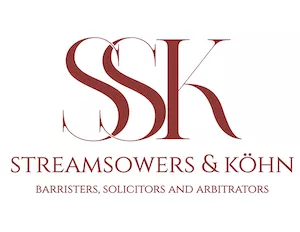- within Tax, Employment and HR and Insurance topic(s)
- with readers working within the Retail & Leisure and Law Firm industries
1. Aircraft and Engine Purchase and Sale
1.1 Sales Agreements
1.1.1 Taxes/Duties Payable Upon Execution of the Sales Agreement
In Nigeria, the execution of an aircraft or engine sale agreement will attract stamp duties at an ad valorem rate of 1.5%.
The gains realised from the sale will be subject to capital gains tax. Capital gains tax at the rate of 10% arises on gains accruing to domestic parties upon the sale of an aircraft or engine. This tax also arises from the sale of ownership interests in Nigerian companies for proceeds in excess of NGN100 million. A rollover relief exists where the proceeds from the sale of the aircraft or engine are used to purchase a new aircraft or engine within 12 months before or after the sale.
For foreign sellers spending an aggregate of 183 days or more in Nigeria in the year of assessment, and foreign companies managed and controlled from outside Nigeria during the year of assessment, capital gains tax shall arise solely on any sums received or brought into Nigeria.
Where the aircraft or engine or other part is imported following a sale, it shall be imported duty free. Notwithstanding the foregoing, the Finance Act 2023 imposes an additional 0.5% charge on goods (including aircrafts) imported into Nigeria from outside the region. The Finance Act 2023 also mandates operators and lessors with income derived from Nigeria to file tax returns as a condition of continued operation.
VAT is applicable on goods physically present in or imported. Further, VAT will not arise where the aircraft or engine is for commercial purposes. These incentives will not apply to private aircrafts.
1.1.2 Enforceability Against Domestic Parties
It is advisable for a sale agreement to be professionally translated to English (the official language of Nigeria) where the sale agreement is not in English. The sale agreement as translated should then be certified and/or notarised in a manner for certifying and notarising such documents in that country. Nigerian courts will not enforce an agreement made in a foreign language.
1.2 Transfer of Ownership
1.2.1 Transferring Title
The transfer of title of an aircraft or engine must be effected through a written agreement, and the parties to the agreement will specify the terms and conditions that must be met for title to pass to the buyer. This position also applies to all installed parts, such as an auxiliary power unit (APU).
The sale of ownership interests in an entity that owns an aircraft or engine will be recognised as a sale of such aircraft or engine once it is agreed in the sale instrument that the entirety of the interests in such entity is being acquired.
1.2.2 Sales Governed by English or New York Law
Transfer instruments such as a bill of sale may specify that it is governed by English or New York law. Such clauses are recognised and enforced by Nigerian courts, provided that the terms and basis of the agreement are not contrary to public policy, tainted with fraud or involving illegality.
The minimum substantive requirement for such a bill of sale will be akin to minimum requirements for a valid contract. These will include:
- the correct identification of the parties (ie, the seller and the buyer);
- the consideration for the sale;
- a precise description of the aircraft or engine or other part being sold;
- the date of the transaction; and
- the signatures of the parties.
1.2.3 Enforceability Against Domestic Parties
A bill of sale, if executed in a language other than the Nigerian official language (which is English), should be translated into English. It should be certified or notarised, particularly if the document is to be tendered in a court proceeding.
1.2.4 Registration, Filing and/or Consent From Government Entities
A bill of sale showing evidence of ownership of the aircraft should be registered and filed with the Nigeria Civil Aviation Authority (NCAA). It is one of the documents that the NCAA requests at the time of registration of the aircraft.
Where the bill of sale is being registered and filed along with the aircraft, the formalities include the submission of an application to the NCAA in a form and manner acceptable to the NCAA. The application must:
- certify that the aircraft meets the eligibility criteria set out in Part 4 of the Nigeria Civil Aviation Regulations (Nig.CARs);
- provide evidence of ownership; and
- be signed.
Where the bill of sale is being registered as an interest, the NCAA has not stipulated any formalities but Part 4 of the Nig.CARs states that the requirements for the registration of legal interests in an aircraft must be as prescribed by the NCAA.
To be eligible for registration, an aircraft should be owned by any of the following persons:
- a Nigerian citizen;
- an individual citizen of another state who is lawfully admitted for permanent residence in Nigeria;
- a corporation lawfully organised and doing business under the laws of Nigeria and the aircraft is based and primarily used in Nigeria;
- a government entity of Nigeria or political subdivision thereof; or
- a foreign person who has leased the aircraft to one of the
above-mentioned persons described above – a leased aircraft:
- may remain on the Nigeria registry only for as long as the lease remains in effect and the certificate of registration includes the names and addresses of the lessee and, if different, the operator of the aircraft; and
- should also not be registered under the laws of any other state and not be more than 25 years old for commercial air transport (cargo) and not be more than 22 years old for commercial air transport (passenger).
There is no period stipulated by law for completion of registration of a bill of sale or other instrument creating an interest in an aircraft.
No government applications or consents are required as a prerequisite to the execution and delivery of a bill of sale in relation to an aircraft or engine registered in Nigeria.
To view the full article click here
Originally Published by Chambers And Partners
The content of this article is intended to provide a general guide to the subject matter. Specialist advice should be sought about your specific circumstances.
[View Source]


